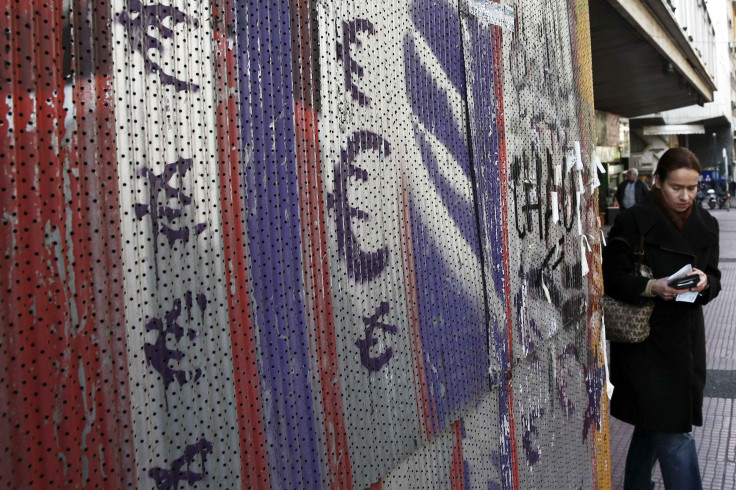Greece Debt Crisis: No Plan B Except For A Deal With The EU, Experts Say

The debt standoff between Greece and its European lenders is sending jitters around the continent after Germany rejected Greece's last-minute request for a six-month extension of its $273 billion bailout program. If officials can't hammer out a deal to extend funding, Greece risks running out of funds in a matter of weeks, without an alternative to a new agreement -- because, experts say, the new government in Athens does not have a backup plan.
Greek officials had warned that they would look to other funding options if a deal with the European Union fell through. “If there is no deal – hopefully there will be – and if we see that Germany remains rigid and wants to blow apart Europe, then we have the obligation to go to Plan B,” Defense Minister Panos Kammenos said last week. “Plan B is to get funding from another source. It could be the United States at best, it could be Russia, it could be China or other countries.”
But analysts say there’s little reason to believe any of these options would be viable for Prime Minister Alexis Tsipras.
“Greece has no good options outside of the EU,” said Douglas Elliott, an economic studies fellow at the Brookings Institution in Washington. “Greece needs Europe far more than Europe needs Greece.”
Greece will need a steady source of funds to make bond payments and meet debt-servicing deadlines in the coming months. It’s due to pay back 1.5 billion euros ($1.7 billion) to the International Monetary Fund by the end of March. But beyond that, it needs an additional 6.5 billion euros ($7.39 billion) for bond payments due in August.
Leaders of Syriza, the left-wing anti-austerity party that won Greece’s parliamentary elections last month, have been strengthening ties with Russia in recent weeks, a development that’s made Europeans nervous in light of the conflict in Ukraine. Syriza's support for Russian President Vladimir Putin's stance on Ukraine, as well as a shared Christian Orthodox religion, have deepened affinities between the two governments. Meanwhile, Russian Foreign Minister Sergei Lavrov said last week that Moscow would consider any future requests from Greece for financial assistance.
It would be “tempting” for Russia to step in to fund Greece, given Moscow’s longtime strategic interest in gaining access to the Mediterranean, said Vincenzo Scarpetta, a political analyst at the London think tank Open Europe. But Russia’s own economic outlook is shaky at the moment, given international sanctions over Ukraine and depressed global crude oil prices. Economic data released this week showed further signs that Russia is headed toward recession. Under these conditions, “we don’t know if Russia would be willing or available or capable of acting as a permanent source of funding for the Greek government,” Scarpetta said.
“Long-term reliance would make [Greece] a kind of Russian colony, dependent on the whims of its master," Elliott said. "This is unlikely to be either desirable for Greece or popular with voters.”
China, which is already investing in development of Piraeus, Athens' port, would have the means to help prop up Greece. But Beijing is known for its pragmatism in financial matters abroad, and there’s little indication it would deviate from its preferred method of investing in commercial enterprises in favor of financing governments directly.
There is also no clear incentive for China to butt into European politics by stepping in to help, Elliott noted. “China has no desire to annoy the rest of Europe by interfering, and there is simply not much in it for them,” he said.
Meanwhile, the United States may have an interest in keeping Greece financially afloat and farther from Russia’s or China’s spheres of influence. But “at the end of the day, Greece is in Europe, and maybe the reaction from the U.S. would be ‘This is a European problem,’” Scarpetta said.
In any case, scenarios of external funding outside the EU are all highly speculative, he added. “For now, none of these alternative options are plausible. It’s very unlikely Greece would try to get funding from somewhere as long as it remains in the eurozone and in the EU. And it’s very hard to figure out what the plans of the Greek government are.”
The likely scenario for now, he said, is that Greece will strike a deal with the European Union. And while there may still be some maneuvering room in the negotiations, Greece has no alternatives to consider as it hurtles toward the Feb. 28 expiration date for its current bailout. For Tsipras and his finance minister, Yanis Varoufakis, Scarpetta said, "time is running out.”
© Copyright IBTimes 2024. All rights reserved.






















